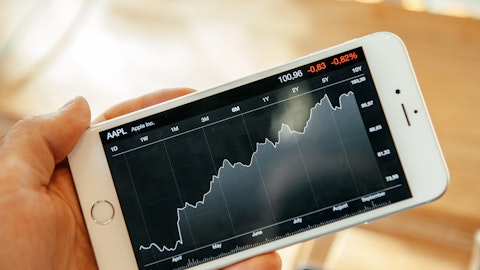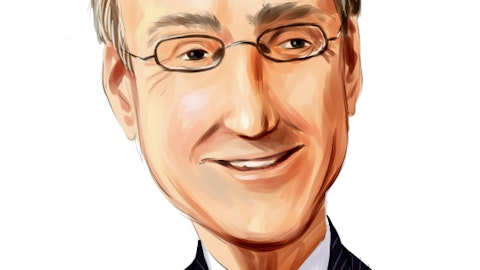Numerous studies conclude that corporate insiders act as contrarian investors, as they usually tend to buy low and sell high. The efficient market hypothesis stipulates that all public information is fully reflected in a security’s market price, which practically means that insiders are not able to generate higher trading profits than non-insiders. However, this theory is not entirely true in real life, especially when it comes to insider buying. Of course, that does not mean that corporate insiders are trading on material non-public information, which is restricted by law, but these individuals do have a better understanding about their companies’ businesses and industries than most non-insiders. This in turn enables them to make very profitable trades, while non-insiders could capitalize on insiders’ “abnormal” trading skills by mimicking their trades (or at least examining these trades). For that reason, the following article will digest the recent insider selling activity registered at three U.S.-listed companies.
Prior to discussing the insider trading activity, let’s make you familiar with what Insider Monkey does. At Insider Monkey, we track hedge funds’ moves in order to identify actionable patterns and profit from them. But why do we track hedge fund activity? From one point of view we can argue that hedge funds are consistently underperforming when it comes to net returns over the last three years, when compared to the S&P 500. But that doesn’t mean that we should completely neglect their activity. There are various reasons behind the low hedge fund returns. Our research indicated that hedge funds’ long positions actually beat the market. In our back-tests covering the 1999-2012 period, hedge funds’ top small-cap stocks beat the S&P 500 index by double digits annually (read the details here).
UnitedHealth Group Inc. (NYSE:UNH) was among the companies that witnessed insider selling this past week. Non-Executive Chairman Richard T. Burke reported selling 50,000 shares on Thursday at prices in the range of $113.55 to $113.85 per share, trimming his total stake to 2.03 million shares. The Chairman also holds an indirect ownership stake of 86,000 shares, which are held by an irrevocable trust for the benefit of his children. Richard T. Burke is the founder of UnitedHealth Group and served as Chief Executive Officer of the company from 1977 to 1987, which makes it hard to believe that there is anyone else who knows more about this company than him. The diversified health and well-being company provides health care coverage and benefits services through the UnitedHealthcare business, and pharmacy care services and IT-enabled services through the Optum business. The shares of the company have advanced nearly 5% over the past 12-month period, and are up by 163% over the past five years. Healthcare spending in the United States accounts for 18% of the nation’s economy and has increased steadily over the past years, which partly explains UnitedHealth Group Inc. (NYSE:UNH)’s phenomenal stock performance. The company generated total revenues of $157.1 billion for 2015, as compared to $130.5 billion for 2014. Clearly, the company has been doing great in recent years, but does the Chairman’s sale represent a cause for concern? Credit Suisse’s analysts do not believe so, considering UnitedHealth Group among the best health care stock ideas for 2016. The investment bank has a price target of $133 on the stock, which yields an upside of at least 19%. Moreover, UnitedHealth Group seems to be undervalued relative to the overall health care industry, as the stock trades at a forward price-to-earnings ratio of 12.73 (the forward P/E ratio for the healthcare sector stands at 14.7). Boykin Curry’s Eagle Capital Management holds a 7.59 million-share position in UnitedHealth Group Inc. (NYSE:UNH) as of the end of the third quarter.
Follow Unitedhealth Group Inc (NYSE:UNH)
Follow Unitedhealth Group Inc (NYSE:UNH)
Receive real-time insider trading and news alerts
Let’s move on to the next page of this article, where we discuss the insider selling witnessed at Corning Incorporated (NYSE:GLW) and Align Technology Inc. (NASDAQ:ALGN).





